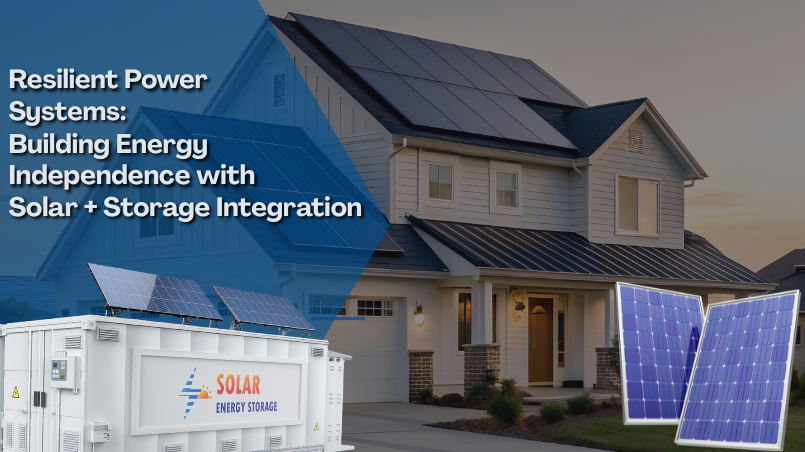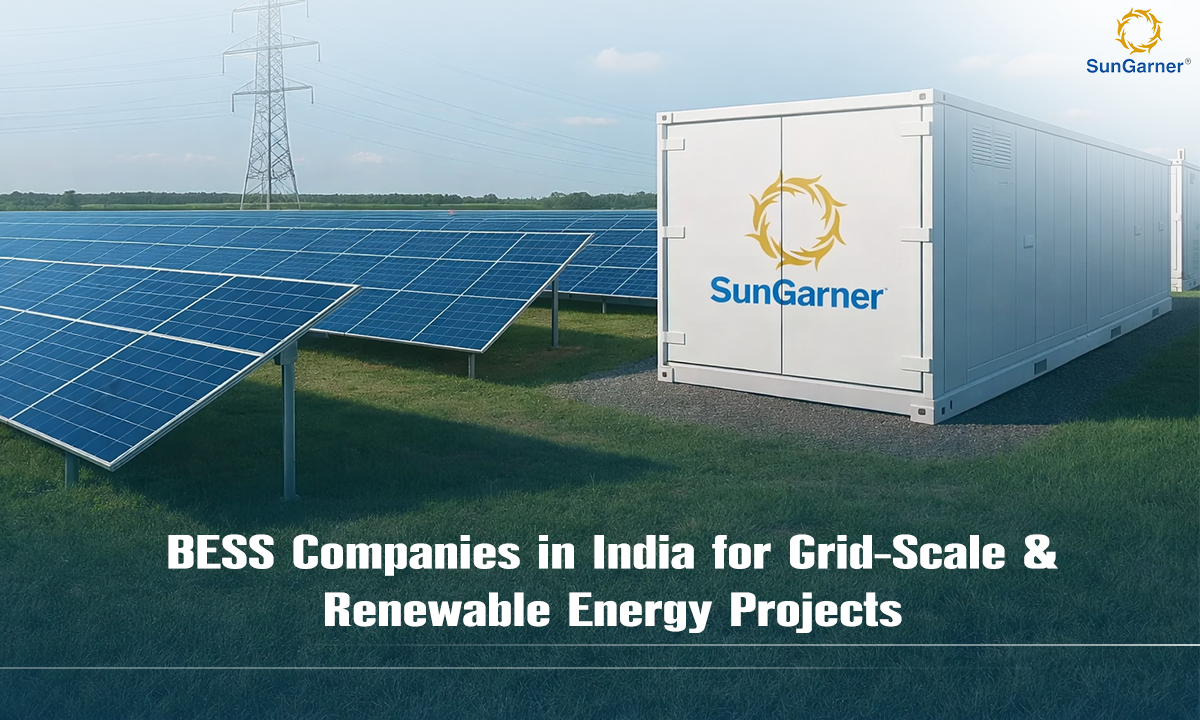Resilient Power Systems: Building Energy Independence with Solar + Storage Integration
Resilience in energy means the ability to withstand grid outages, adapt to fluctuating demands, and operate independently. Solar + storage integration enables users to store excess daytime energy and use it during nighttime or during power cuts.....
In a world increasingly vulnerable to energy disruptions, resilient power systems are no longer a futuristic concept—they’re today’s necessity. From unpredictable weather events to fluctuating grid stability, both homes and industries are recognizing the importance of reliable and independent power sources. The integration of solar energy with advanced battery storage is emerging as the most sustainable path toward true energy independence, particularly in India’s growing renewable landscape.
The Shift Toward Solar + Storage Systems
India has made remarkable progress in solar adoption over the last decade. However, the traditional solar setup—where solar panels generate electricity only during daylight—has a key limitation: dependence on the grid or diesel generators after sunset. This gap is now being bridged by solar + storage systems, which combine solar panels with battery energy storage solutions (BESS) for continuous, reliable power.
With advancements in battery technology—particularly Lithium Iron Phosphate (LFP) and other next-gen chemistries—these hybrid systems are delivering higher efficiency, longer lifespans, and better ROI than ever before. For both residential and commercial sectors, it means consistent energy availability, lower electricity bills, and a reduced carbon footprint.
Resilience: The Core of Energy Independence
Resilience in energy means the ability to withstand grid outages, adapt to fluctuating demands, and operate independently. Solar + storage integration enables users to store excess daytime energy and use it during nighttime or during power cuts.
For industries that rely on continuous power—like manufacturing, healthcare, and data centers—this resilience translates to uninterrupted operations, minimized downtime, and better cost predictability.
Urban areas are especially benefitting from microgrids and distributed energy systems, where solar-powered communities share stored energy through smart grid technology. This decentralized model not only enhances reliability but also reduces transmission losses and dependency on large utilities.
Key Components of Solar + Storage Integration
1. Solar Panels: Capture sunlight and convert it into electricity through photovoltaic (PV) cells.
2. Battery Storage: Stores excess energy for later use—typically using advanced LFP or lithium-ion batteries.
3. Inverters: Convert DC electricity from panels and batteries into AC power for everyday use.
4. Energy Management Systems (EMS): Smart software that monitors, controls, and optimizes energy generation, usage, and storage in real-time.
Together, these components create a closed-loop ecosystem that ensures consistent, self-sustaining power availability.
Industry Trends and Innovations in 2025
The solar + storage market is witnessing rapid transformation in 2025, driven by technological innovation, government incentives, and growing environmental awareness. Some key trends include:
* AI-powered Energy Management: Artificial intelligence and IoT integration allow predictive energy optimization, helping consumers make smarter energy decisions.
* Grid-forming Inverters: These intelligent devices enable systems to operate even during grid outages, improving grid stability.
* Modular and Scalable Batteries: Modern systems are designed for scalability—allowing businesses to expand their storage capacity as energy needs grow.
* EV Integration: Electric vehicles are becoming part of the energy ecosystem, functioning as mobile storage units that can feed energy back into the system.
The Economic Advantage
While the upfront investment in solar + storage systems might seem significant, the long-term economic benefits are undeniable. Reduced grid dependency leads to lower operational costs, while net metering policies allow users to sell excess power back to the grid. For commercial setups, this results in measurable ROI within a few years.
Furthermore, with rising grid tariffs and diesel costs, hybrid solar systems are quickly proving to be a smarter and more sustainable choice for both urban and rural sectors.
Sustainability Beyond Cost Savings
Energy independence isn’t just about saving money—it’s about sustainability and resilience. By reducing reliance on fossil fuels, solar + storage systems help mitigate carbon emissions, contributing to India’s goal of achieving net-zero emissions by 2070.
Companies like SunGarner are at the forefront of this movement, offering innovative hybrid solar solutions designed for Indian conditions—robust, efficient, and future-ready.
Final Thoughts
As the world transitions toward renewable energy dominance, solar + storage integration stands as the foundation of a resilient, self-sufficient future. Whether for households, industries, or entire smart cities, the ability to generate, store, and manage clean energy independently is redefining how we power our lives.
SunGarner continues to lead this transformation—helping India move closer to a sustainable, energy-secure tomorrow.
FAQs
1. What is a solar + storage system?
Ans: A solar + storage system combines solar panels with a battery energy storage unit, allowing users to store excess solar power for later use, ensuring continuous energy availability.
2. How does solar + storage improve energy resilience?
Ans: These systems provide backup power during outages and reduce dependency on the grid, ensuring uninterrupted power supply for critical applications.
3. Which battery technology is best for solar storage in 2025?
Ans: LFP (Lithium Iron Phosphate) batteries are currently leading the market due to their long cycle life, thermal stability, and environmental safety.
4. Is solar + storage suitable for industrial applications?
Ans: Absolutely. Industries benefit from cost savings, operational continuity, and power reliability—especially in areas with unstable grid supply.
5. How can SunGarner help businesses adopt solar + storage systems?
Ans: SunGarner provides customized solar + storage solutions with cutting-edge technology, expert installation, and long-term support—empowering clients to achieve true energy independence.








.jpeg)
